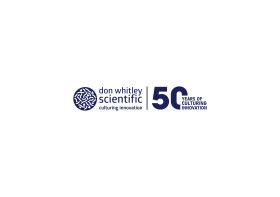
Conrado Guerrero Quiles, a postdoctoral researcher at the University of Oxford, was recently awarded with the Don Whitley Scientific (DWS) Travel Grant. Conrado used the award to present his research, ‘A pan-cancer characterisation of the hypoxic ECM identifies a gene signature predictive of radiotherapy benefit’, at the European Society for Radiotherapy and Oncology (ESTRO) in Vienna, Austria.
We asked Conrado to share more about his work and experience at ESTRO:
“I’m Conrado, a postdoctoral researcher at the University of Oxford, working at the interface of tumour biology, the extracellular matrix (ECM), and radiotherapy resistance. Thanks to the DWS Travel Award, I had the incredible opportunity to attend ESTRO 2025 - Europe’s flagship radiation oncology conference - where I presented work from our recent preprint (now under review at Nature Communications).
Our study is the first multi-omics characterisation of the ECM in in hypoxic tumours. We integrated proteomics, transcriptomics, and spatial profiling to uncover how hypoxia changes in the ECM - normally considered structural ‘scaffolding’ - can actively drive resistance to radiotherapy. What was especially exciting (and nerve-wracking!) was being able to present this research to an audience of clinical oncologists, medical physicists, and translational scientists at ESTRO.
I had so many great conversations at my poster. Some attendees were surprised to learn how an ECM signature can predict radiotherapy outcomes and could one day help personalise treatment for cancer patients. Others were fascinated by our findings on collagen remodelling and the differences between cancer cell and fibroblasts reprogramming in hypoxic tumours.
The Whitley Workstations were absolutely central to this work. Our models of tumour hypoxia and radiotherapy resistance wouldn’t have been possible without the stable and physiologically relevant oxygen conditions we maintained using the Whitley H35 Hypoxystation, which we used to culture cells, extract samples for omics analysis, and conduct mechanistic studies in cell migration and adhesion. The reliability of these workstations allowed us to build robust, reproducible datasets that gave confidence to our collaborators and reviewers alike.
The highlight of ESTRO for me wasn’t just presenting - it was also connecting. I had insightful chats with experts in bladder cancer clinical trials, met a few researchers whose work I’ve been citing for years, and even had discussions about possible future collaborations and funding schemes. I left the conference feeling inspired, energised, and more integrated into the wider radiotherapy research community.
This opportunity truly wouldn't have been possible without the support from DWS. Travel grants like these are invaluable for early-career researchers trying to bridge the academic-clinical-industry divide, especially when working on projects with direct translational potential.
Huge thanks to the DWS team for helping me bring our science to the people who can act on it."
We thank Conrado for providing such a generous overview of his research and experience, and wish him all the best in his future endeavours.
If you've used a Whitley Workstation in your work, you could be the next DWS Travel Grant awardee! Explore the possibilities now by heading over to our travel grant page.


 au
au


 xEnglish
xEnglish